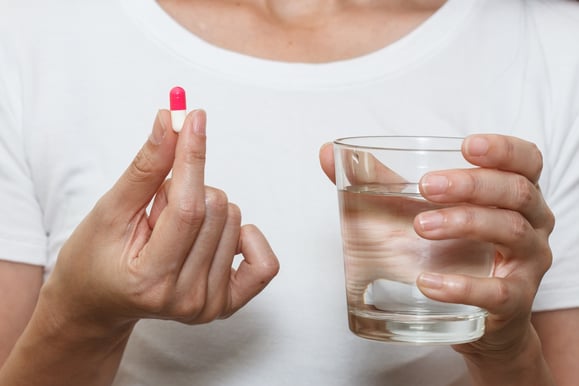Top Medication Myths Debunked

Misconceptions about medications are more common than we may realize and can create barriers to using them effectively. Reliance on “medication myths” can cause serious health problems, some with long lasting effects. Below is a list of common pharmacy related myths and the facts that may help to clear up some of these misconceptions.
Myth: Brand name medications are better than generics because they are more expensive.
Fact: You may be concerned that generics cost less because they are inferior to more recognizable brand names, but that’s not the case. It is important to understand that generic medications are not cheaply made, and that the cost difference is not due to shortcuts by the manufacturer.
Generic drugs are less expensive because the companies that make them don't need to spend money on drug research and development, clinical trials, marketing, and advertising — as brand-name drug manufacturers do. These costs can be hundreds of millions of dollars for a single drug. The generic producers have the benefit to ultimately pass these cost savings on to consumers.
The Food and Drug Administration (FDA) approves generic drugs and ensures that they meet the same strict standards of strength, quality, and purity that are applied to brand-name drugs.
Myth: Generic medications have more side effects than the brand
Fact: The FDA requires the same potency, efficacy, and safety for all drugs with the same active ingredient, whether they are brand-name or generic drugs. The only differences the FDA allows are with inactive ingredients, such as preservatives, flavoring and binding agents, and those that affect appearance.
Those inactive ingredients may cause side effects in some people, but this is equally possible for the inactive ingredients in brand-name drugs. People that experience these side effects are most likely those with known allergies to foods or other drugs. For most individuals, however, generic drugs will work just as well as brand-name drugs and switching can save a lot of money.
Myth: I feel better so there is no need to continue taking my prescription medication
Fact: It may be tempting to stop taking your medication when you no longer have symptoms. However, this does not necessarily mean that the bacteria or virus that caused the illness in the first place has been eliminated. Many medications take time to reach optimal effectiveness, so adhering to a consistent regimen is important to decrease the chance of your illness relapsing.
Myth: Antibiotics are always the answer
Fact: Patients commonly request antibiotics thinking they are the solution for a quicker recovery from their illness. In turn, many health care professionals will prescribe them unnecessarily.
Antibiotics are only helpful in illnesses such as strep throat caused by bacteria. Most illnesses, like colds, sore throats, and acute respiratory infections are caused by viruses that don’t respond to antibiotics. Even though you may be feeling miserable, over-the-counter medications will usually relieve your symptoms until the virus is gone.
This misconception contributes to the overuse and inappropriate use of antibiotics which causes the treatment to lose its strength and ability to effectively treat bacterial infections going forward. This is known as antibiotic resistance and constitutes as one of the most challenging problems in modern health.
Myth: Medication can be swallowed with the sip of any drink
Fact: Medication should always be taken with a sufficient amount of water. Other liquids such as alcohol, milk, or juice can potentially interfere with how the drug is absorbed in the body and decrease its effectiveness.
Myth: Natural supplements are always a safer choice
Fact: Patients commonly confuse the term “natural” with “healthy” which is a trend seen in nutrition, as well as medications.
Natural supplements may seem safer and healthier than over-the-counter medications, however, FDA standards for natural supplements are much weaker than the standards for approved drugs. Natural supplements are regulated as food, not drugs, which means the effectiveness of the supplement does not have to be proven before it is marketed.
In addition, the amount of each ingredient may vary between products and possible side effects as well as safety information may not be mentioned on the label. This could cause a potential for natural supplements to dangerously interact with other medications a person could be taking.
It is important to remember to always consult with your doctor or pharmacist when considering a natural product.
Other Posts You Might Be Interested In
Subscribe to email updates
Stay up-to-date on what's happening at this blog and get additional content about the benefits of subscribing.


